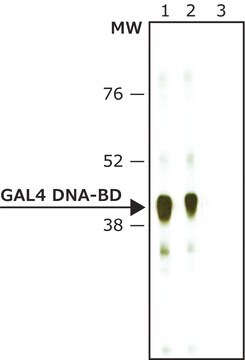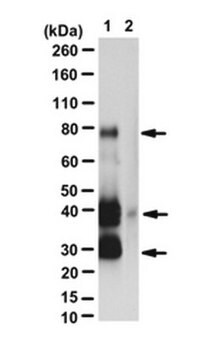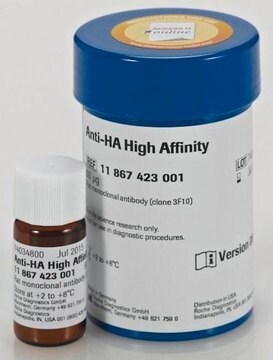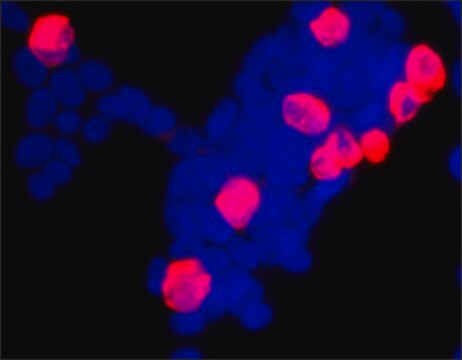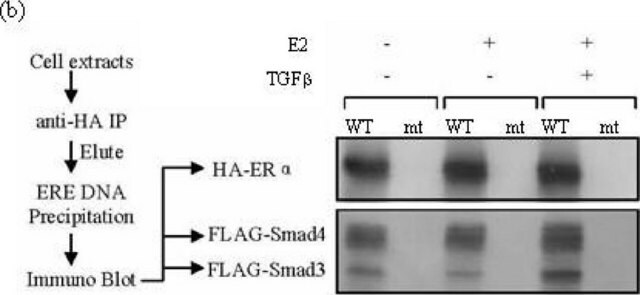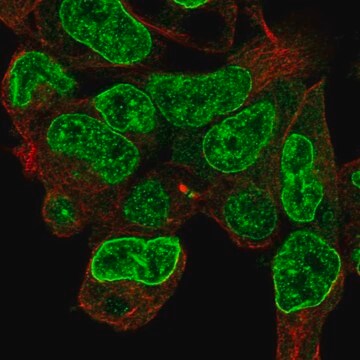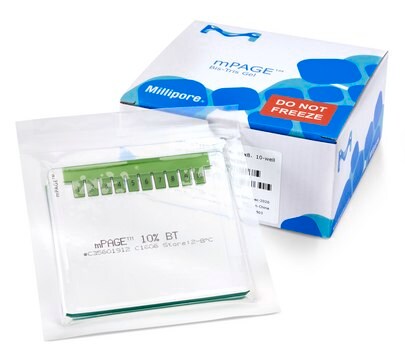V4388
Anti-VP16 antibody produced in rabbit
IgG fraction of antiserum, buffered aqueous solution
Sinonimo/i:
Anti Alpha trans-inducing protein
About This Item
WB
western blot: 1:1,000 using mammalian cell extracts expressing VP16 fusion proteins
Prodotti consigliati
Origine biologica
rabbit
Livello qualitativo
Coniugato
unconjugated
Forma dell’anticorpo
IgG fraction of antiserum
Tipo di anticorpo
primary antibodies
Clone
polyclonal
Stato
buffered aqueous solution
tecniche
immunoprecipitation (IP): 10 μg using mammalian cell extracts expressing VP16 fusion proteins
western blot: 1:1,000 using mammalian cell extracts expressing VP16 fusion proteins
Condizioni di spedizione
dry ice
Temperatura di conservazione
−20°C
modifica post-traduzionali bersaglio
unmodified
Categorie correlate
Descrizione generale
Immunogeno
Applicazioni
Stato fisico
Non trovi il prodotto giusto?
Prova il nostro Motore di ricerca dei prodotti.
Codice della classe di stoccaggio
10 - Combustible liquids
Classe di pericolosità dell'acqua (WGK)
WGK 3
Punto d’infiammabilità (°F)
Not applicable
Punto d’infiammabilità (°C)
Not applicable
Scegli una delle versioni più recenti:
Possiedi già questo prodotto?
I documenti relativi ai prodotti acquistati recentemente sono disponibili nell’Archivio dei documenti.
Il team dei nostri ricercatori vanta grande esperienza in tutte le aree della ricerca quali Life Science, scienza dei materiali, sintesi chimica, cromatografia, discipline analitiche, ecc..
Contatta l'Assistenza Tecnica.